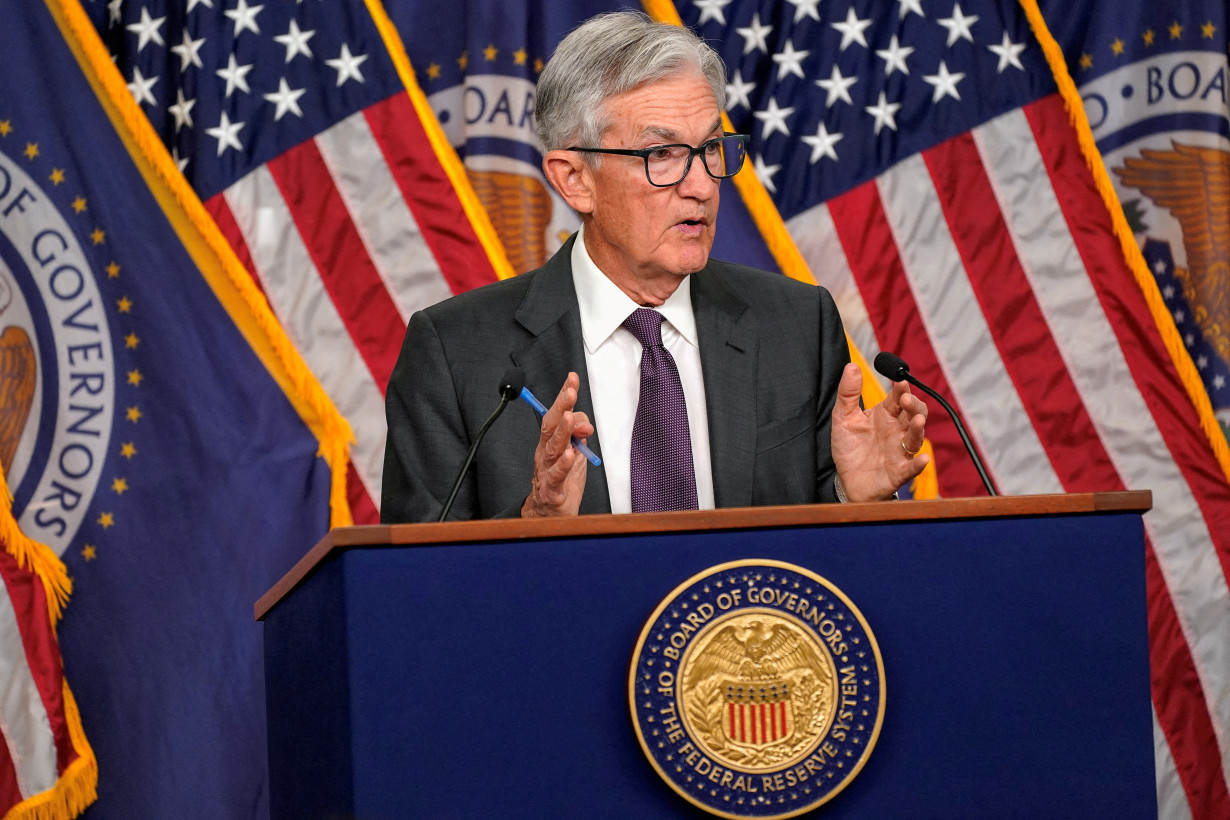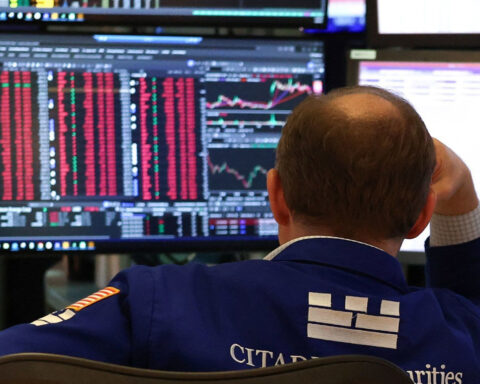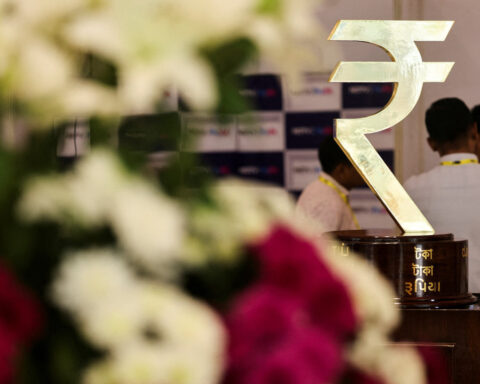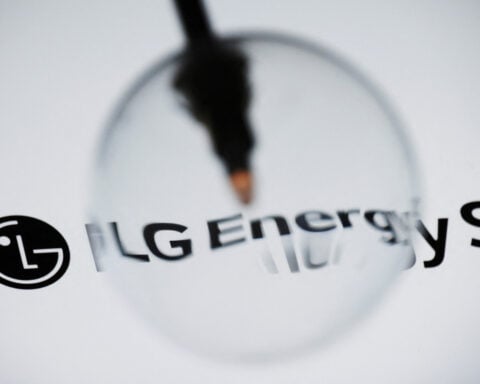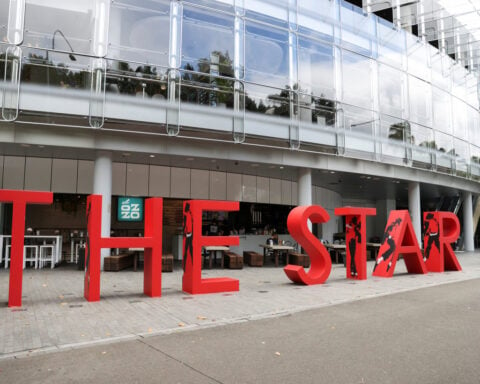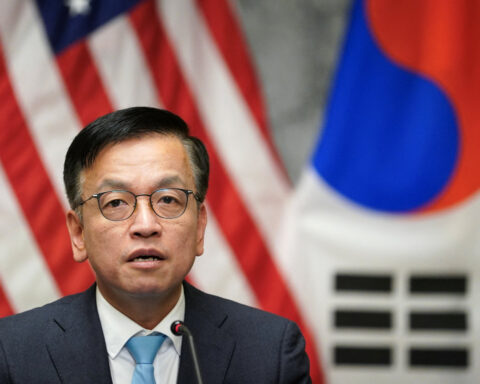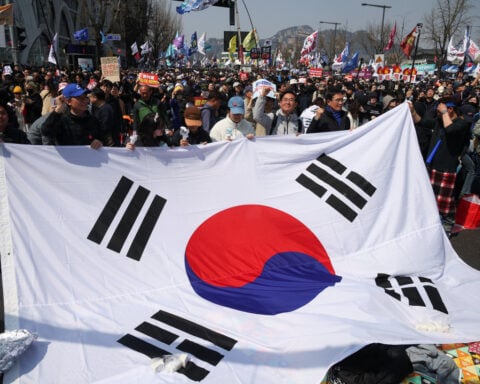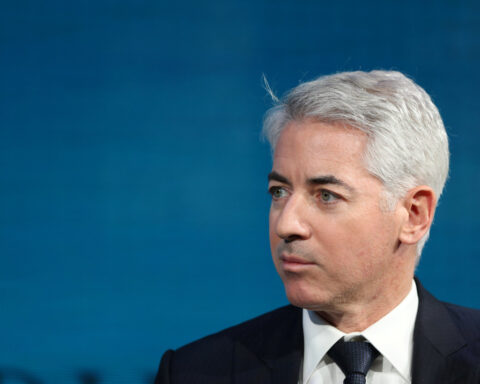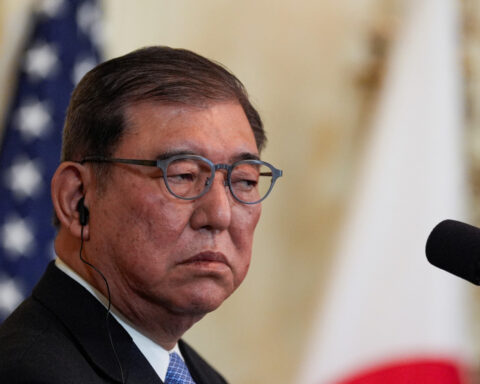By Howard Schneider
WASHINGTON (Reuters) -President Donald Trump's new tariffs are "larger than expected," and the economic fallout including higher inflation and slower growth likely will be as well, Federal Reserve Chair Jerome Powell said on Friday, while cautioning it was still too soon to know what the right response from the central bank ought to be.
"We face a highly uncertain outlook with elevated risks of both higher unemployment and higher inflation," undermining both of the Fed's mandates of 2% inflation and maximum employment, Powell told a business journalists' conference in Arlington, Virginia, in remarks that pointed to difficult decisions ahead for the U.S. central bank and did nothing to staunch a global bloodletting in stock markets.
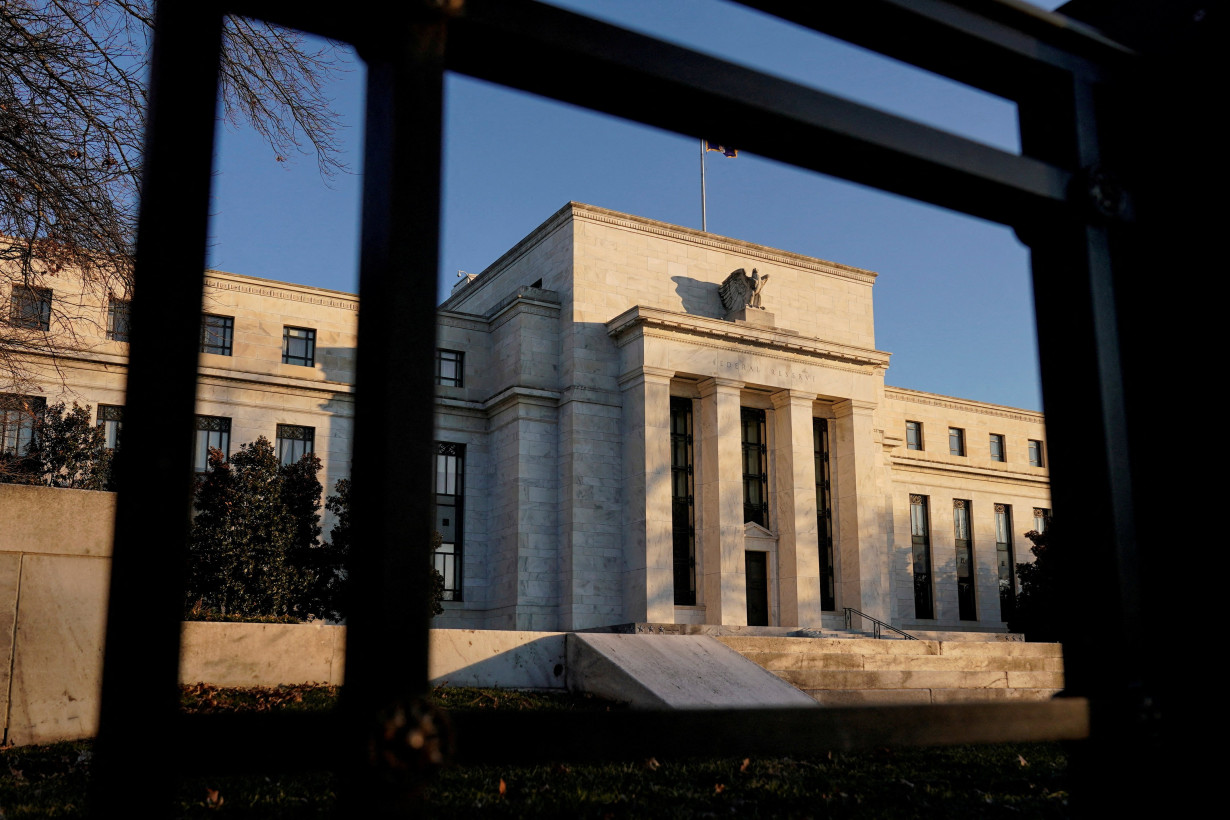
Powell spoke as equity markets from Tokyo to London to New York continued a swoon that has wiped some 10% off major U.S. stock indexes since Trump announced a raft of new tariffs on trading partners around the world on Wednesday.
Investors had looked to Powell's speech for reassurance that perhaps the Fed was poised to take supportive actions as it has in previous moments of extreme market duress, and Trump himself took to his social media platform to say now would be the "perfect time" for the Fed to cut interest rates.
But Powell did not address the selloff directly, instead acknowledging that the Fed faced the same uncertainty engulfing investors and company executives.
The S&P 500 Index was down another nearly 6%, with the Dow Jones Industrial Average 5.5% lower and the Nasdaq off 5%, ending a two-day decline that is the worst since the onset of the coronavirus pandemic in March 2020.
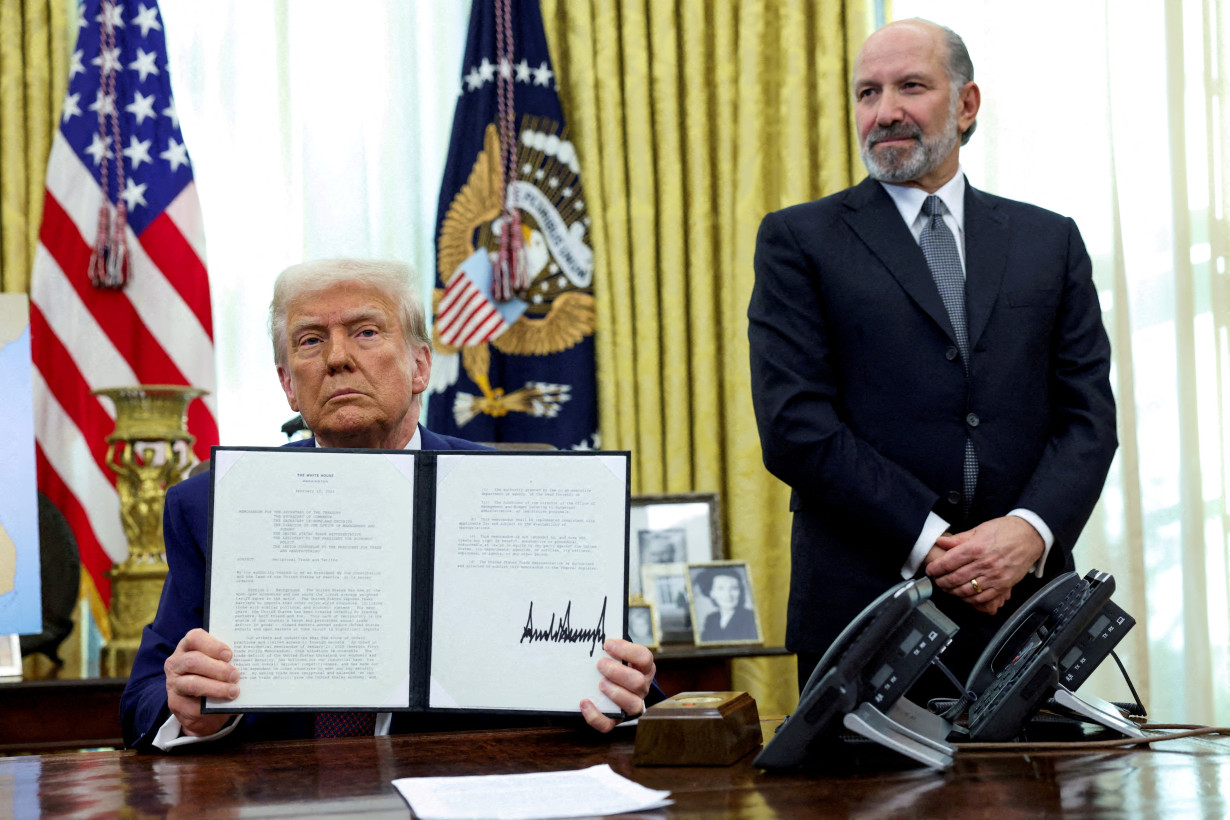
"Powell’s comments support our view that the Fed is not poised to rush in and cut interest rates anytime soon, despite President Trump’s call right ahead of Chair Powell’s comments to do so," Nationwide Chief Economist Kathy Bostjancic said. "As such, we maintain our view the Fed waits until (the fourth quarter) to cut interest rates as the acceleration in inflation in the coming months makes them hesitant to lower rates to support the slowing economy."
Powell said the Fed has time to wait for more data to decide how monetary policy should respond, but the central bank's focus will be on ensuring that inflation expectations remain anchored, particularly if Trump's import taxes touch off a more persistent jump in price pressures.
"While tariffs are highly likely to generate at least a temporary rise in inflation, it is also possible that the effects could be more persistent," Powell said.
"Our obligation is to keep longer-term inflation expectations well anchored and to make certain that a one-time increase in the price level does not become an ongoing inflation problem," he said.
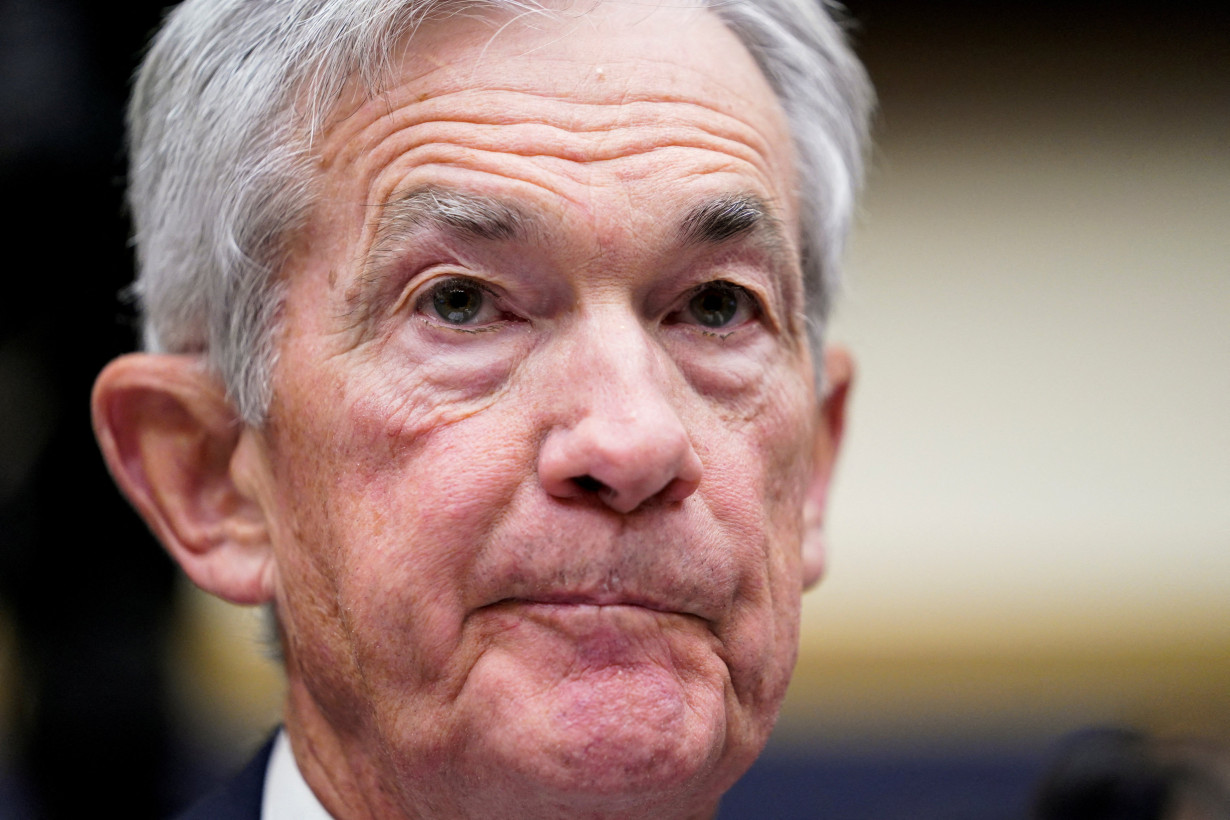
Powell said it was not the Fed's role to comment on Trump's policies but rather to react to how they might affect an economy that he and his colleagues regarded just a few weeks ago as being in a "sweet spot" of falling inflation and low unemployment.
"Uncertainty is high," Powell said in response to a question from the event moderators. "What we've learned is that the tariffs are higher than anticipated, higher than almost all forecasters predicted."
While it is unclear how it will play out, he said, "the same is likely to be true of the economic effects, which will include higher inflation and slower growth."
Powell's comments highlighted the tension the Fed is seeing emerge between "hard data" that remains solid - the economy added 228,000 jobs in March with a 4.2% unemployment rate - and "soft data" like surveys and interviews with business contacts that point to a coming slowdown.
"We are closely watching this tension between the hard and soft data. As the new policies and their likely economic effects become clearer, we will have a better sense of their implications for the economy and for monetary policy," Powell said.
"We are well positioned to wait for greater clarity before considering any adjustments to our policy stance. It is too soon to say what will be the appropriate path for monetary policy."
PUSH AND PULL
The confounding set of risks, with prices rising even as the economy appears set to weaken, has become increasingly central to Fed commentary as the scope of Trump's tariff plans become clear and other countries respond.
China has announced retaliatory tariffs of 34% on all U.S. goods, restrictions on the export of minerals critical to the tech industry, and other measures including limits on imports of U.S.-raised chickens - a nod to Trump's support in rural, agricultural parts of the country.
Administration officials have so far downplayed the market sell-off, the worst since the onset of the COVID-19 pandemic, as necessary for U.S. economic gains in the future.
Retaliation by other countries like China, one of the largest U.S. trading partners and the wellspring of many trade grievances among U.S. politicians of both political parties, is one of the channels Fed officials have said could cause Trump's import taxes to lead to more persistent price pressures.
The push and pull expected between slower growth and rising prices could well keep the Fed on hold until it is clear which trend takes hold more forcefully.
Investors in contracts tied to the central bank's policy rate appear to be expecting the risks to growth will dominate.
Markets now expect four quarter-percentage-point interest rate cuts from the Fed this year versus three before Trump's announcement of tariffs that could tax imports an average of as much as 27% by some estimates, versus about 2.5% at the end of the Biden administration.
(Reporting by Howard Schneider; Editing by Paul Simao and Andrea Ricci)

 Trump has begun another trade war. Here's a timeline of how we got here
Trump has begun another trade war. Here's a timeline of how we got here
 Canada's leader laments lost friendship with US in town that sheltered stranded Americans after 9/11
Canada's leader laments lost friendship with US in town that sheltered stranded Americans after 9/11
 Chinese EV giant BYD's fourth-quarter profit leaps 73%
Chinese EV giant BYD's fourth-quarter profit leaps 73%
 You're an American in another land? Prepare to talk about the why and how of Trump 2.0
You're an American in another land? Prepare to talk about the why and how of Trump 2.0
 Chalk talk: Star power, top teams and No. 5 seeds headline the women's March Madness Sweet 16
Chalk talk: Star power, top teams and No. 5 seeds headline the women's March Madness Sweet 16
 Purdue returns to Sweet 16 with 76-62 win over McNeese in March Madness
Purdue returns to Sweet 16 with 76-62 win over McNeese in March Madness
